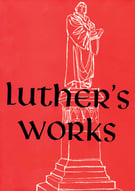In this psalm, after the Israelites had been exiled in Babylon for seventy years, we see God’s restoration of His people—not merely restoration from exile but foreshadowing our spiritual restoration in Jesus’ death and resurrection, as well as the total restoration to come at Christ’s return.
Unexpected Grace
When the LORD restored the fortunes of Zion, we were like those who dream. (v. 1)
The exiles from Israel had experienced God’s wrath firsthand. The city of Jerusalem and the temple had been a desolate ruins for seventy years. Their parents had raised families and made a new life, but it had been unthinkable that they could ever go home to the Promised Land—until now.
Babylon had fallen, replaced by a Persian king named Cyrus. In the first year of his reign, Cyrus issued a proclamation: “The LORD, the God of heaven ... has charged me to build Him a house at Jerusalem, which is in Judah. Whoever is among you of all His people, may the LORD his God be with him. Let him go up” (2 Chronicles 36:23). Not only were they going home but the king was providing the materials for them to rebuild the temple—God’s temple.
God’s Consistent Mercy
Then our mouth was filled with laughter, and our tongue with shouts of joy; then they said among the nations, “The LORD has done great things for them.” The LORD has done great things for us; we are glad. (vv. 2–3)
St. John Lutheran Church in Kendallville, Indiana, is blessed with a school, offering Lutheran education from preschool through eighth grade. Recently, one of our teachers asked me to come to her classroom to answer questions compiled by her students regarding the Bible. One of the questions read, “Why is the Old Testament full of wrath and judgment?” Innocent enough, the question is based on what is largely a myth regarding the first two-thirds of the Bible. True, God is just and does censure the people of Israel repeatedly, but taken as a whole, the Old Testament is a testimony to God’s grace, mercy, forgiveness, and restoration. The Old Testament relates a repeated cycle. The people of Israel are faithless and adopt the pagan beliefs of neighboring nations. God disciplines them through the invasion and subjugation by bordering kingdoms. The people repent, and then God restores them. The book of Judges is replete with examples. In reaction to God’s consistent mercy, we understand the words of verses 2 and 3 above. God is faithful for the sake of His love, covenant, and the promised Savior He would bring to the world through them.
Restoration in Christ
Restore our fortunes, O LORD, like streams in the Negeb! (v. 4)
It is in this Savior, God’s Son in the flesh, that the Lord brings about a restoration far more broad and profound than a reestablishment of political borders or ousting of invaders. More broad in the sense that the redemption of Jesus Christ was made for the whole world, throughout human history. Profound in that work of Jesus Christ brings in the heavenly kingdom with an eternal tenure that dwarfs even the longest earthly reign. While the people of Israel’s kingdom cried out the words of verse 4 in the hope of an earthly king to restore the earthly Israel, God was working out a restoration through the perfect life, innocent death, and victorious resurrection of the Messiah. This Messiah won His kingdom not through the valiance of brave soldiers under His command but instead by His obedience to His Father’s will. Jesus did not rescue sinners by the bloodletting of other men but instead by the shedding of His own on the cross. For this reason, Christians cry out the words of verse 4 as we sojourn through Advent, longing for the return of the King who was born in Bethlehem.
Not only did God bring terrestrial restoration for the nation of Israel and spiritual restoration for sinners at the cross but the Lord in His Holy Spirit brings restoration to the individual. Through the ministry of Word and Sacrament, the Holy Spirit draws the lost out of sin, death, and the power of the devil. In the Bible and Holy Baptism, God brings the Gospel message of salvation in Jesus Christ to His enemies. In doing so, our merciful Lord creates faith in the sinner, through which he or she receives the blessings which the Son earned at the cross—forgiveness of sins and everlasting life. The Lord restores our faith each time we read or hear the Word and receive His body and blood in the Sacrament of Holy Communion.
An End to Joyfully Anticipate
Those who sow in tears shall reap with shouts of joy! He who goes out weeping, bearing the seed for sowing, shall come home with shouts of joy, bringing his sheaves with him. (vv. 5–6)
A couple of weeks ago, we celebrated the end of the Church Year. We heard of Jesus, the sheep and the goats, and our Lord’s return. His return will be an ending. For the sheep, Christians, the day of Jesus’ return in glory will manifest the words of verses 5 and 6 above. This will end the misery of this vale of tears, this sojourn of darkness, with it temptations and torments. What an end to joyfully anticipate! Alternatively, one could argue that the cross is the more significant end. There Jesus declared, “It is finished” (John 19:30), bringing an end to sin, death, and the power of the devil. Christ won the victory. We know the end of the story. As Christians we are people of the cross, the empty tomb, and ascension’s hill. Presently we wander in the desert, but we do so knowing what awaits us, and the Reason why.
Scripture: ESV®.

Continue your study of the Psalms with Volume 11 of Luther’s Works.












